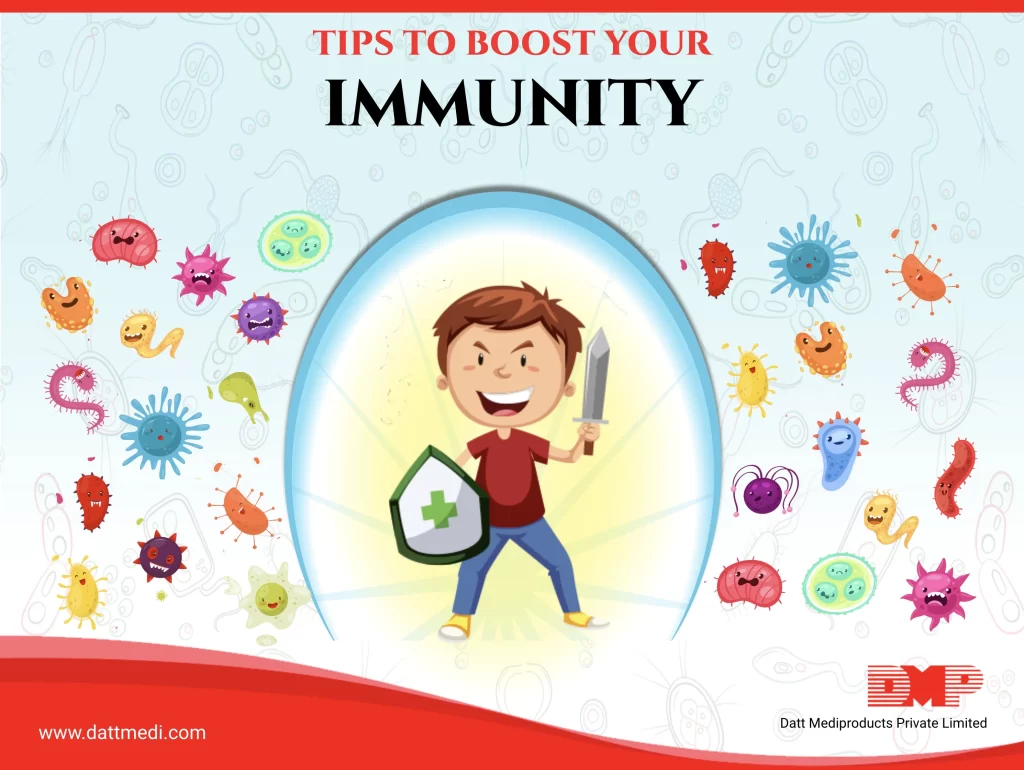
You might be a healthcare worker risking your life to support others or you might be working from home amid this COVID-19 lockdown. But all of us need strength to beat this virus.
This is the power of our IMMUNITY. It’s not any magic pill, nor is anything which can be injected. It is present inside all of us. The stronger our immunity is, the better we can fight any harmful disease and stay healthy. We understand the importance of this superpower and bring to you some key pointers, incorporating which can help strengthen your immunity to better fight off the deadly virus.
Let’s first discuss what exactly immunity is.
What is Immunity?
Immunity is the defense mechanism of our body. The Merriam Webster dictionary defines it as “the quality or state of being immune” especially “a condition of being able to resist a particular disease especially through preventing development of a pathogenic microorganism or by counteracting the effects of its products”.
The bodily system involved is called the IMMUNE SYSTEM and consists of various cells and proteins which help defend our body from foreign substances including disease- and infection-causing agents.
As we age, our immunity decreases. People above 65 years age are more prone to death from influenza, COVID-19, pneumonia, & other respiratory infections. This is because of thymus atrophying with age releasing lesser number of T-cells to fight off infections.
Following these measures can make you age healthy and maintain a healthier immune system.
EVERDAY BASICS:
When we initiate talking about boosting our immunity, we start with 3 main habits. The basic of washing hands on regular intervals for at least 20 secs., followed by not touching your face and maintaining social distancing. These 3 basics ensure the cleanliness of your hands, and that you don’t transfer any germs to your face, which is an easy entry point to your body.
EAT RIGHT:
Choose greens, whole grains, and unprocessed foods over the processed variants. These work wonders for your inner health. Moreover, Micronutrients such as vitamin A, C, B6, E, Copper, Folic Acid, Iron, Zinc etc. also increase our immunity. Let’s have a look at few other important immunity boosting diet components.
1. Vitamin-C Rich Foods:
These are excellent immunity boosters. A study published in The British Journal of Nutrition 2012 says that “Consumption of Gold Kiwifruit Reduces Severity and Duration of Selected Upper Respiratory Tract Infection Symptoms and Increases Plasma Vitamin C Concentration in Healthy Older Adults”.
2. Prebiotics: — These contain inulin fiber and help nurture good bacteria present in our gut.
3. Antioxidants:
Colorful vegetables and fruits like spinach, berries are antioxidant-rich and help to reduce oxidative stress and build a stronger immunity.
LIFESTYLE UPDATES:
Consistent stress negatively affects immunity power because of the release of stress hormone “cortisol”. Introducing some lifestyle changes that we have mentioned below may help boost immunity:
1. Sleep Enough:
Prioritize sleep as a good quality eight-hour sleep is essential to fight off infections. If you need help consult a reputed therapist.
2. Exercise:
Staying physically active assists our body to functions better. A daily exercise of 30 mins. proves to be beneficial. It increases our resilience to better fight off diseases.
3. Meditate:
Its calming helps sleep, reduce heart rate, lowers blood pressure & anxiety levels.
Don’t smoke, limit alcohol intake & minimize stress.
A review published in Alcohol Research 2015, “Alcohol & the Immune System”, states that high levels of alcohol consumption can weaken your body’s ability to fight infection and slow down your recovery time.
Spend some time in outdoors also as Vitamin D from sunshine also plays an important role in immune health. As per a scientific report “Spending at least 120 minutes a week in nature is associated with good health and wellbeing”.
Apart from these, we @Dattmediproducts truly believe that attitude is everything. Keeping a positive mindset is essential for the good health and well-being of an individual. We understand that this social distancing and staying home is not easy, but negative emotions may you more susceptible to common cold & flu.
So, Stay Positive, Be Healthy, Fight off Infections!





